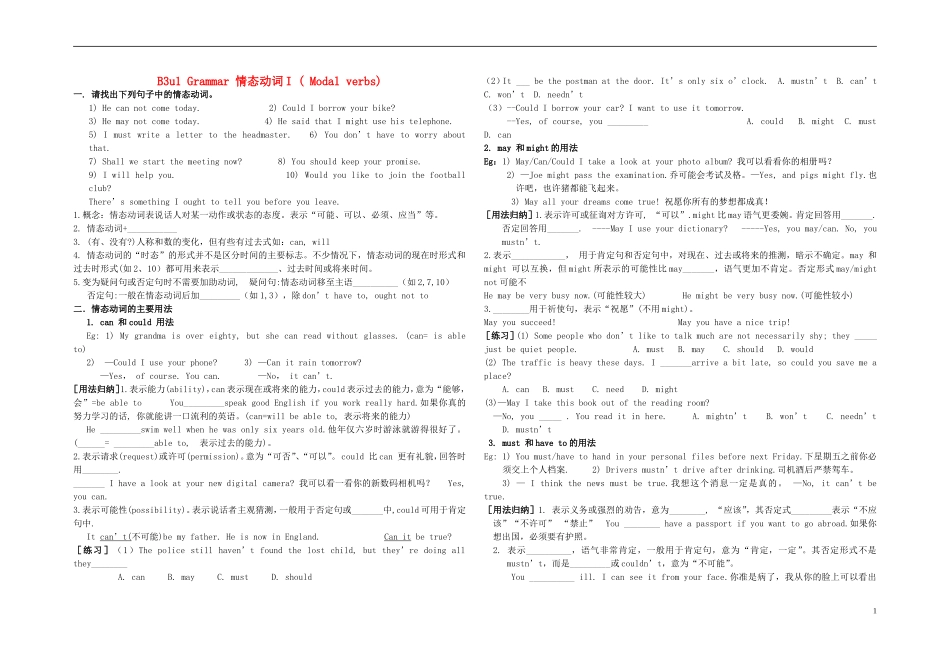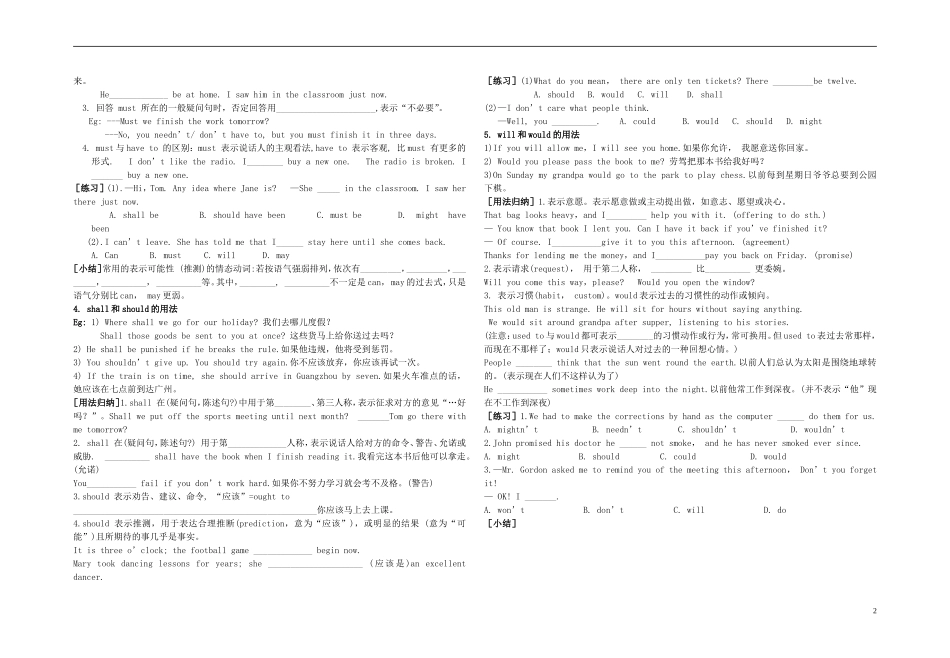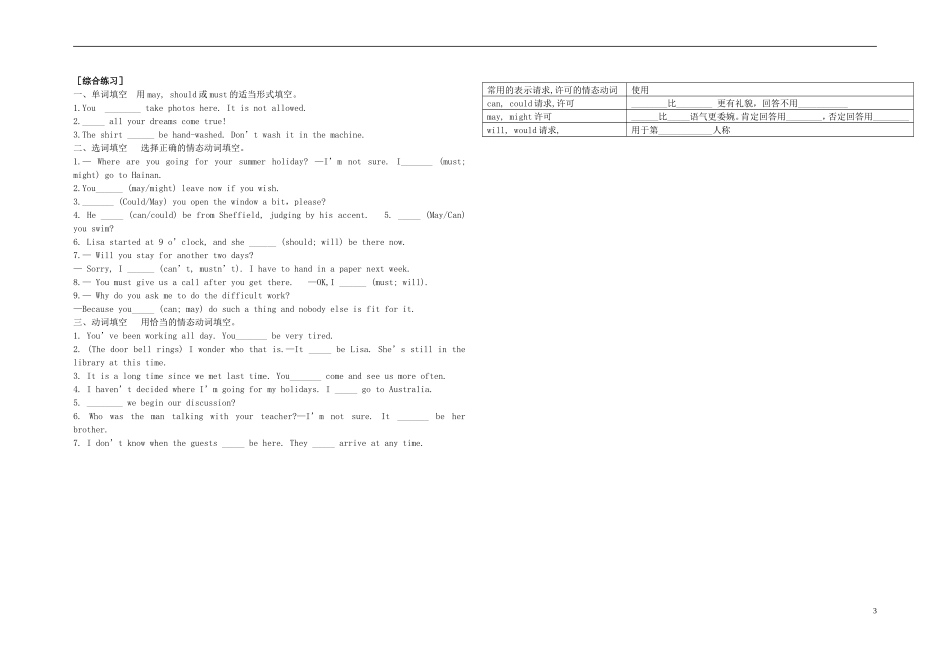B3u1 Grammar 情态动词 I ( Modal verbs)一. 请找出下列句子中的情态动词。1) He can not come today. 2) Could I borrow your bike?3) He may not come today. 4) He said that I might use his telephone.5) I must write a letter to the headmaster. 6) You don’t have to worry about that.7) Shall we start the meeting now? 8) You should keep your promise.9) I will help you. 10) Would you like to join the football club?There’s something I ought to tell you before you leave.1.概念:情态动词表说话人对某一动作或状态的态度。表示“可能、可以、必须、应当”等。2. 情态动词+___________3. (有、没有?)人称和数的变化,但有些有过去式如:can, will 4. 情态动词的“时态”的形式并不是区分时间的主要标志。不少情况下,情态动词的现在时形式和过去时形式(如 2、10)都可用来表示_____________、过去时间或将来时间。 5.变为疑问句或否定句时不需要加助动词, 疑问句:情态动词移至主语__________(如 2,7,10) 否定句:一般在情态动词后加_________(如 1,3),除 don’t have to, ought not to二.情态动词的主要用法 1. can 和 could 用法Eg: 1) My grandma is over eighty, but she can read without glasses. (can= is able to)2) —Could I use your phone? 3) —Can it rain tomorrow? —Yes, of course. You can. —No, it can’t.[用法归纳]1.表示能力(ability),can 表示现在或将来的能力,could 表示过去的能力,意为“能够,会”=be able to You_________speak good English if you work really hard.如果你真的努力学习的话, 你就能讲一口流利的英语。(can=will be able to, 表示将来的能力)He _________swim well when he was only six years old.他年仅六岁时游泳就游得很好了。(______= _________able to, 表示过去的能力)。2.表示请求(request)或许可(permission)。意为“可否”、“可以”。 could 比 can 更有礼貌,回答时用________._______ I have a look at your new digital camera? 我可以看一看你的新数码相机吗? Yes, you can.3.表示可能性(possibility)。表示说话者主观猜测,一般用于否定句或___...


